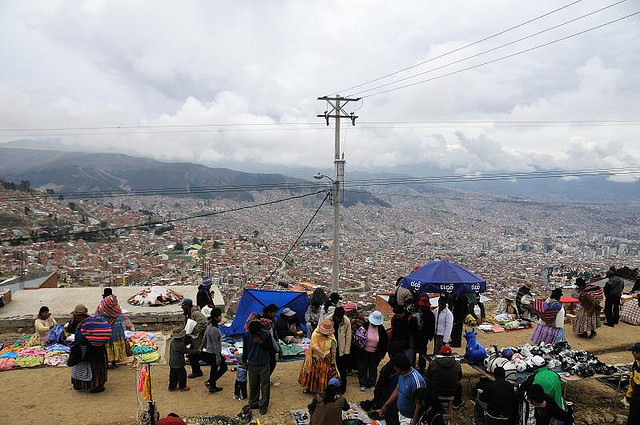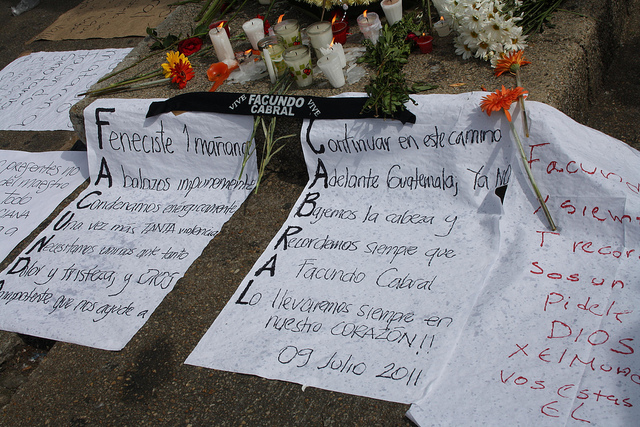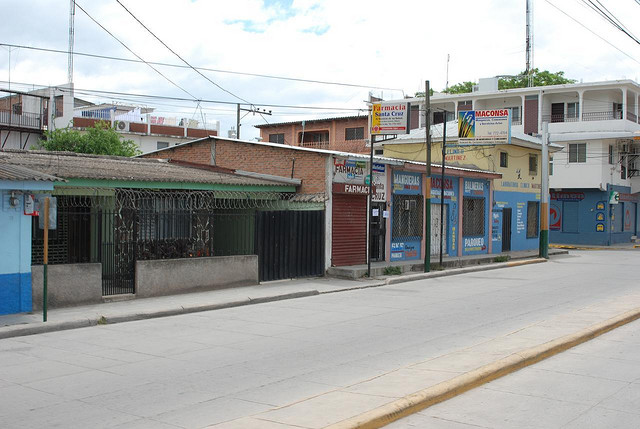
Bolivia, Latin America: Week in Review
Bolivia: Gang May Have Killed 69 Minibus Passengers
February 22, 2012 By Staff
Today in Latin America
Top Story — At least 69 people may have been murdered in the Bolivian city of El Alto after they boarded minibuses operated by a group of bandits. Due to a lack of alternative transportation in the early hours of the morning, Bolivians living in El Alto, an impoverished suburb of La Paz, often board public mini buses to get to work. Over the last thirteen months, gangs have reportedly taken over some of the buses and lured passengers inside, only to strangle them, rob them, and leave the passengers for dead on the outskirts of the city. Survivors of the attacks say that they were robbed for little more than a cell phone and some extra cash. Last week, Bolivian police arrested eight suspected members of the gang, including alleged ringleader Julio Erwin Valdéz, who now faces murder charges. Citizens of El Alto marched on Wednesday and Thursday to protest the violence and insecurity in their community.
Read more from the Washington Post.
Headlines from the Western Hemisphere
North America
- Mexican authorities Monday said that all of the 44 prisoners killed in Sunday’s Apodaca prison riot were members of the Gulf Cartel, and 30 members of the Zetas cartel escaped.
- A U.S. federal judge has upheld much of a Nebraska ruling that would require employers to verify the citizenship status of employees, but rejected a portion saying that landlords could deny housing permits to undocumented immigrants.
- Tourism to the Mexican resort city of Acapulco has dropped to half of its previous levels in the last five years as drug gang violence in the area increases.
Caribbean
- Puerto Rican Governor Luis Fortuño said Tuesday that the GOP presidential ticket should include a Latino politician to win over more Latino voters.
- A U.S. federal prosecutor said Tuesday that a Haitian drug lord will only serve half of his 27-year sentence for his assistance in convicting other Haitian officials and drug traffickers.
Central America
- Honduran authorities said that initial investigation of the Comayagua prison fire that killed 360 inmates last week was likely due to a cigarette.
- El Salvador’s Minister of Justice and Public Security said that homicides in the country have increased due to a backlash against drug cartels.
- A Guatemalan court ruled Monday to extradite suspected Sinaloa cartel member Elio Lorenzana to the U.S.
- Costa Rican legislators are closer to passing a bill that would ban smoking from public areas and include large ads on cigarette packs warning against the dangers of smoking.
Andes
- Cuban doctors discovered that Venezuelan President Hugo Chávez will have to undergo a second surgery to a recurring cancerous tumor. Chávez said he was cancer-free after four rounds of chemotherapy last year.
- The director of Colombia’s civil aviation authority said Tuesday that the country would invest $197 million to improve its air infrastructure after a three-day strike by air traffic controllers.
- The border between Chile and Peru, which was closed after rains washed landmines onto the road, is expected to reopen on Wednesday.
Southern Cone
- Protestors in Chile’s Aysén region have asked the Argentine government to “adopt” them in a response to the high cost of living and unemployment in the region.
- Brazilians previously working under conditions classified as slavery are now being hired to help construct soccer stadiums for the 2014 World Cup after receiving six months of on-site training.
- Chile’s Collahuasi mine halted operations Monday afternoon after a worker was killed when a pump burst in the pools of the mine’s sulfides plant.
Image: César Angel. Zaragoza @ Flickr.
Subscribe to Today in Latin America by Email





